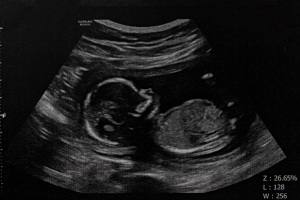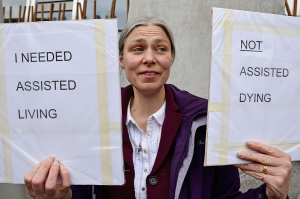Protestant Heads Still Committed to Dialogue Despite Vatican's 'One True Church' Claim
Following the quick response from the head of the world's Reformed churches, more Protestant denominational heads have spoken out against the Vatican's reassertion this week of the primacy of the Roman Catholic Church.
However, the leaders, although voicing disagreement with the Vatican, noted that the statement is nothing new.
"Similar statements and perspectives precipitated the 16th century Reformation nearly 500 years ago," Dr. Gerald B. Kieschnick, president of The Lutheran Church – Missouri Synod, said in a statement Thursday.
"At that time Martin Luther said, 'Popes and councils can err.' Apparently that is still true today," he added.
Earlier this week, Pope Benedict XVI approved a document which stated that the Roman Catholic Church is the "one true Church," while all non-Catholic churches are simply "ecclesial communities."
"Other Christian communities are either defective or not true churches and Catholicism provides the only true path to salvation," the pope was quoted as saying.
In response, global Protestant church bodies – which have often held ecumenical meetings with the Catholic Church – expressed disappointment at the statement in regards to efforts on Christian unity.
In a letter addressed to Cardinal Walter Kasper, president of the Pontifical Council of Christian Unity, the Rev. Dr. Setri Nyomi of the World Alliance of Reformed Churches (WARC) questioned the Vatican's statement at a time where society as well as the Christian body is struggling with division and placing great emphasis on unity.
"We are puzzled by the release of a statement of this kind at this time in the history of the church," wrote the WARC's general secretary in the letter Tuesday. "An exclusive claim that identifies the Roman Catholic Church as the one church of Jesus Christ … goes against the spirit of our Christian calling toward oneness in Christ.
"It makes us question the seriousness with which the Roman Catholic Church takes its dialogues with the Reformed family and other families of the church," the letter added. "It makes us question whether we are indeed praying together for Christian unity."
Two days later, the Lutheran World Federation's general secretary, the Rev. Dr. Ishmael Noko, said Lutheran churches "do not accept the understandings of church or the description of our lived reality of faith" found in the Vatican document, titled "Responses to Some Questions Regarding Certain Aspects of the Doctrine on the Church."
Moreover, Noko, like LCMS's Kieschnick, said that though the Vatican's position is nothing new to them, they were "saddened and disappointed that it is reasserted again for our current context, in which the work of ecumenical partnership has produced such significant results."
However, the heads of the LWF, LCMS, the WARC, and the Presbyterian Church (U.S.A.) have all said they remain committed to ecumenical dialogue with the Roman Catholic Church.
"Understanding ourselves to be fully church, where the gospel is rightly preached and the sacraments rightly administered, we remain committed to ecumenical dialogue, including continued conversation with our partners in the Roman Catholic Church," the LWF's Noko stressed.





























